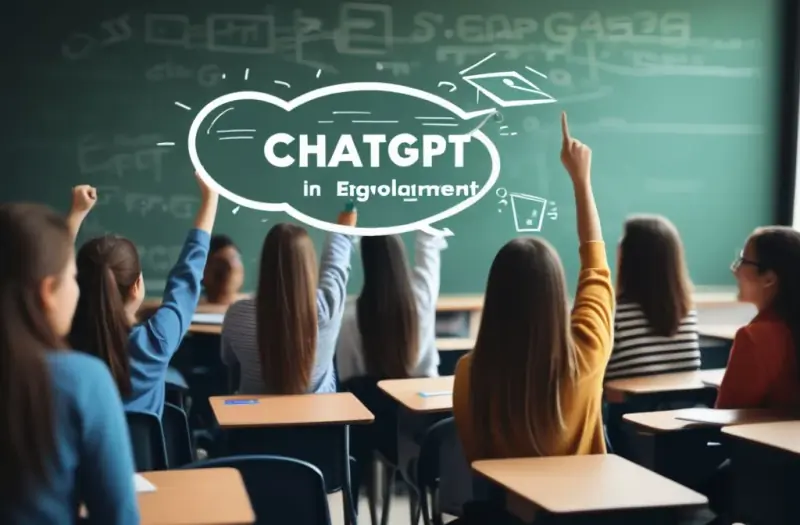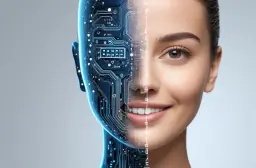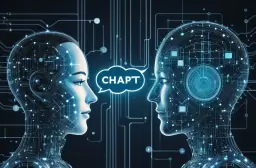ChatGPT in Education: Revolutionizing Learning

Table of Contents
In today’s fast-paced digital age, the integration of AI in education is transforming how students learn and engage with academic content. Among the AI tools making waves in this transformation is ChatGPT, an AI-driven tutoring system that is changing classrooms and creating more personalized, engaging learning experiences. As educators explore the potential of AI, intelligent learning systems like ChatGPT have become pivotal in fostering new methods of teaching and learning.
How ChatGPT is Transforming the Classroom
The classroom environment is evolving, and ChatGPT is at the forefront of this revolution. It allows for personalized education with AI, tailoring learning experiences to the needs and pace of individual students. Whether it’s through one-on-one tutoring or classroom-wide activities, AI-powered teaching tools provide educators with the ability to offer real-time feedback and insights.
Enhancing Student Engagement
One of the biggest challenges in modern education is keeping students engaged. With distractions at an all-time high, maintaining focus in traditional classroom settings can be difficult. ChatGPT’s adaptive learning technology addresses this by creating dynamic and interactive learning experiences. It offers:
- Immediate responses to student queries, making learning more interactive.
- Personalized lessons tailored to each student’s learning pace.
- A continuous stream of feedback to help students stay on track.
By integrating machine learning in education, ChatGPT encourages students to take a more active role in their learning journey, enhancing engagement and motivation.
AI-Enhanced Tutoring and Support

Traditionally, students who needed extra help outside of class had limited options—hiring a tutor or spending hours after school with teachers. However, AI-driven tutoring offers a more flexible and accessible solution. ChatGPT provides on-demand tutoring and can answer questions in real-time, giving students the support they need exactly when they need it.
Personalized Learning Assistance
One of the standout features of ChatGPT is its ability to deliver personalized learning experiences. It can analyze each student’s progress and adjust its teaching methods accordingly, helping them tackle challenges and master difficult topics. Whether a student is struggling with complex math problems or needs help drafting an essay, AI-supported educational tools like ChatGPT adapt to their unique needs.
AI in Student Assessment
Assessing students has traditionally been a time-consuming process for educators. However, AI in student assessment is streamlining this task. ChatGPT can assist in grading assignments, providing feedback on written work, and even evaluating student performance through quizzes. This automated learning process allows teachers to focus more on instruction and less on administrative tasks, ultimately improving classroom efficiency.
ChatGPT and Adaptive Learning Platforms
Educational AI solutions like ChatGPT are being integrated into AI-based learning platforms, creating a more flexible and adaptive environment for students. These platforms can analyze learning patterns, assess weaknesses, and recommend specific content to help students improve. Through natural language processing in education, ChatGPT can hold detailed conversations with students, simulate problem-solving scenarios, and guide them through complex topics in a way that feels natural and intuitive.
Interactive Learning Experiences
The use of AI-assisted instruction enhances interactivity in the classroom. For example, ChatGPT can facilitate discussion-based learning, where students engage in guided conversations that stimulate critical thinking. Additionally, the tool can generate practice problems, quizzes, and interactive simulations, giving students hands-on experience with the subject matter.
By using adaptive learning technology, ChatGPT ensures that students aren’t just passive receivers of information but active participants in their educational journey. This engagement is crucial for developing long-term retention and understanding.
The Role of ChatGPT in Teacher Support
While the focus is often on how ChatGPT benefits students, it’s important to recognize the value it brings to teachers. Educators are often overwhelmed with tasks such as lesson planning, grading, and student support. AI-powered teaching tools like ChatGPT can alleviate some of this burden.
Automating Routine Tasks
One of the most significant advantages of using AI in the classroom is its ability to automate routine tasks. ChatGPT can assist in:
- Grading assignments and tests.
- Generating lesson plans and supplementary materials.
- Providing feedback on student performance.
By automating these tasks, teachers can devote more time to personalized instruction and engaging with students on a deeper level.
Supporting Teacher Development
ChatGPT is not only beneficial for student learning but also supports teachers in their professional development. It can help educators stay updated with the latest teaching strategies and educational resources, allowing them to continuously improve their instructional methods.
FAQs about ChatGPT in Education
How does ChatGPT improve student engagement?
ChatGPT improves student engagement by providing interactive, personalized learning experiences that cater to each student’s pace and preferences, making lessons more engaging and accessible.
Can ChatGPT replace human teachers?
No, ChatGPT is designed to assist teachers, not replace them. It acts as a supplemental tool, helping educators with tasks like grading, lesson planning, and providing students with personalized support.
Is ChatGPT capable of grading assignments?
Yes, ChatGPT can assist with grading assignments, particularly in subjects that involve written responses. It provides automated feedback, saving teachers time and allowing for more efficient assessment.
Does ChatGPT support students with different learning styles?
Absolutely. ChatGPT uses adaptive learning technology to cater to various learning styles, ensuring that each student receives instruction that aligns with their individual needs.
What are the privacy concerns regarding the use of AI in education?
Privacy concerns surrounding AI in education typically involve the collection of student data. However, many educational AI platforms, including ChatGPT, prioritize data security and privacy, adhering to strict guidelines to protect student information.
Conclusion
In conclusion, ChatGPT is revolutionizing education by offering personalized, engaging, and efficient learning experiences for students while also providing invaluable support to teachers. As we continue to integrate AI in education, tools like ChatGPT will play a crucial role in shaping the future of learning, making it more adaptive and accessible to all. The collaboration between AI-powered teaching tools and human educators is not about replacement, but enhancement—ensuring that every student has the opportunity to succeed.
Key Takeaways
- ChatGPT in Education is transforming traditional learning environments by offering AI-driven tutoring and personalized instruction.
- The tool enhances student engagement by delivering real-time, interactive learning experiences.
- AI-based learning platforms with ChatGPT offer flexibility and adaptability, helping students progress at their own pace.
- Teachers benefit from ChatGPT through task automation and instructional support, allowing them to focus on AI-enhanced classroom activities.
- The future of education will see a collaborative effort between human educators and AI-supported educational tools, fostering more inclusive and effective learning environments.
Popular Tags
ADS SPACE HERE


